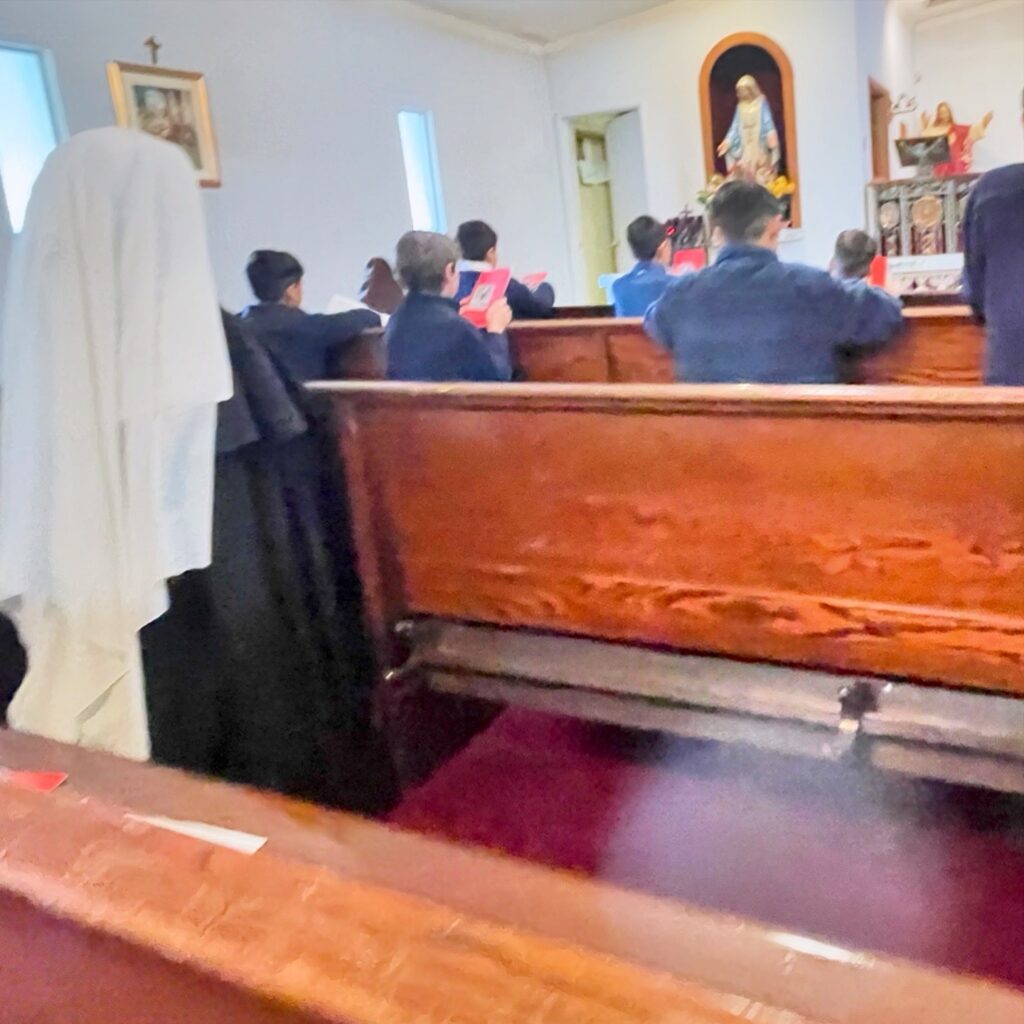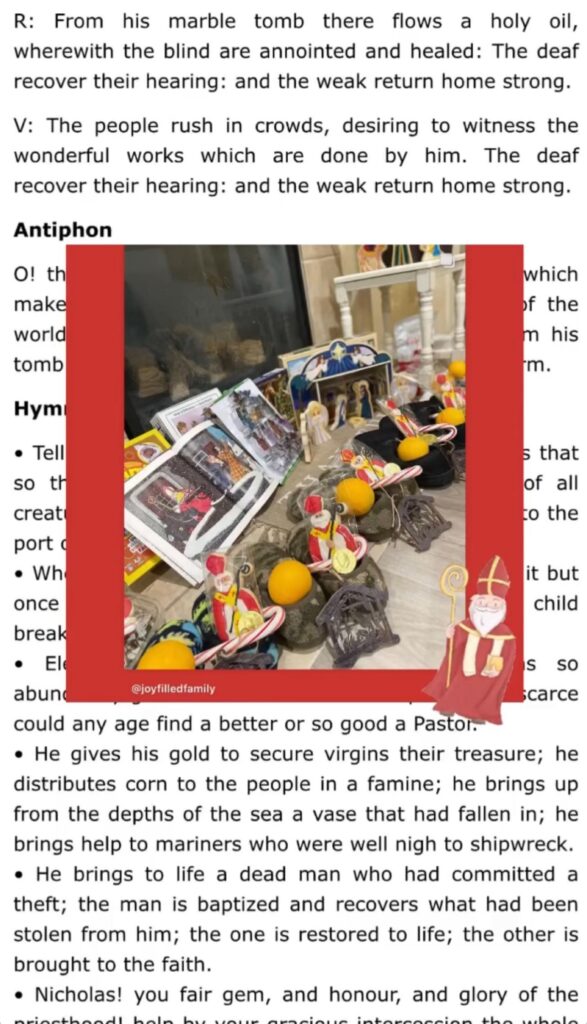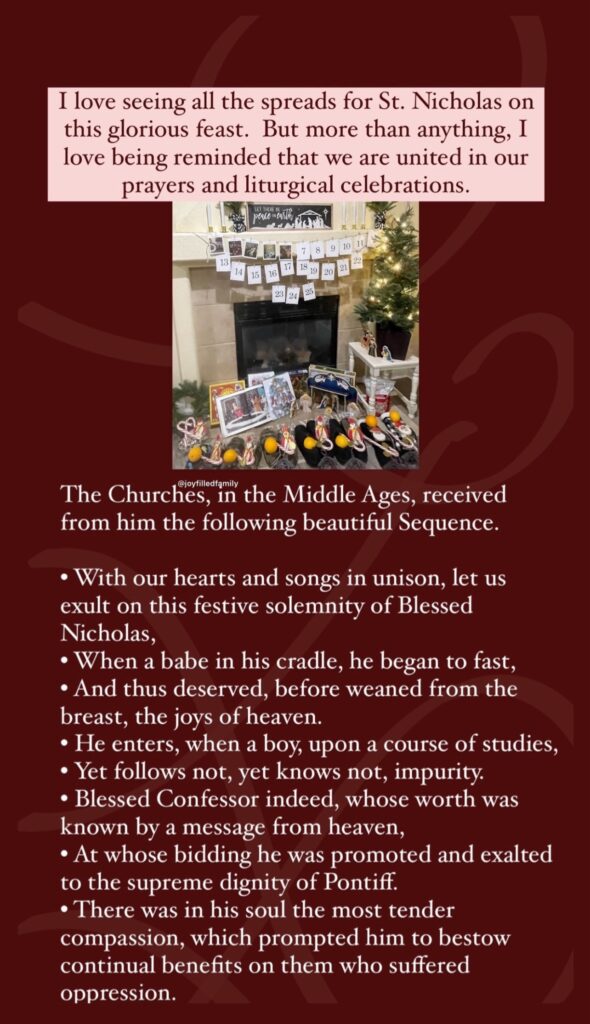I thought I was ahead of the game this year, but I put off the final touches, which led to an even earlier start than my usual 4 a.m. wake-up. However, JOYfilled Dad stepped in, as he always does—this is his feast day to spearhead, and he makes it happen with love and dedication.

He even surprised me with my own St. Nicholas treat: a personal space heater, knowing how I’m always cold, even in our California winters. 🥰
We kept it simple (though I know the pictures may not look that way—welcome to large family life!). Each of the kids received a new pair of slippers and something cozy like a coat, blanket, or pajamas, along with a few sweets. We decided against gifting new spiritual reads this year, as we’re deeply immersed in our renewal of the Total Consecration to Jesus through Mary.
Our day was filled with unexpected blessings, too! We received thoughtful St. Nicholas treats from our #1 and her family, and the greatest gift of all—a surprise visit from the grandbabies/niece and nephew. 💙 💗
Our youngest received a package with St. Nicholas coins from his godparents.
Our beloved Sisters also showered the children and me with St. Nicholas goodies.
The boys and I were able to assist at Holy Mass and offer an hour of adoration for the reparation of the Sacred Heart of Jesus given it was also a First Friday this year.
There was one particularly unexpected treat (last slides!) that truly felt like an answered prayer for one or more of my sons. I’m convinced it was a gift from Our Lord through the intercession of St. Nicholas and our other spiritual benefactor — hence the name, Nicola Mary Anthony Peter.
Our hearts are full of gratitude as we journey deeper into Advent, preparing our home and hearts for the coming of the Christ Child. May St. Nicholas inspire us all to grow in generosity and love during this season of joyful anticipation!
🎁✨ What was one your favorite St. Nicholas treats/memories from this year’s feastday?































